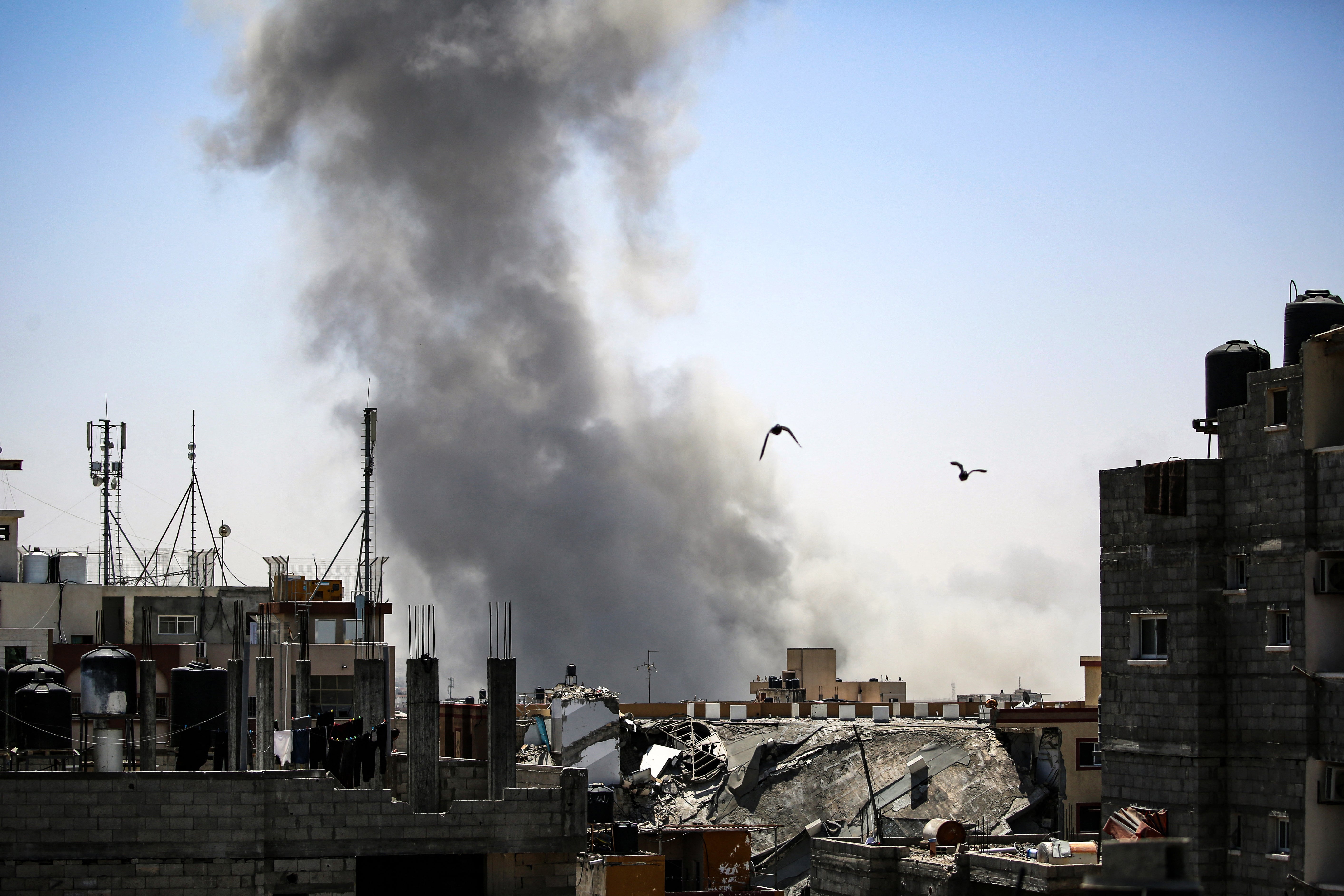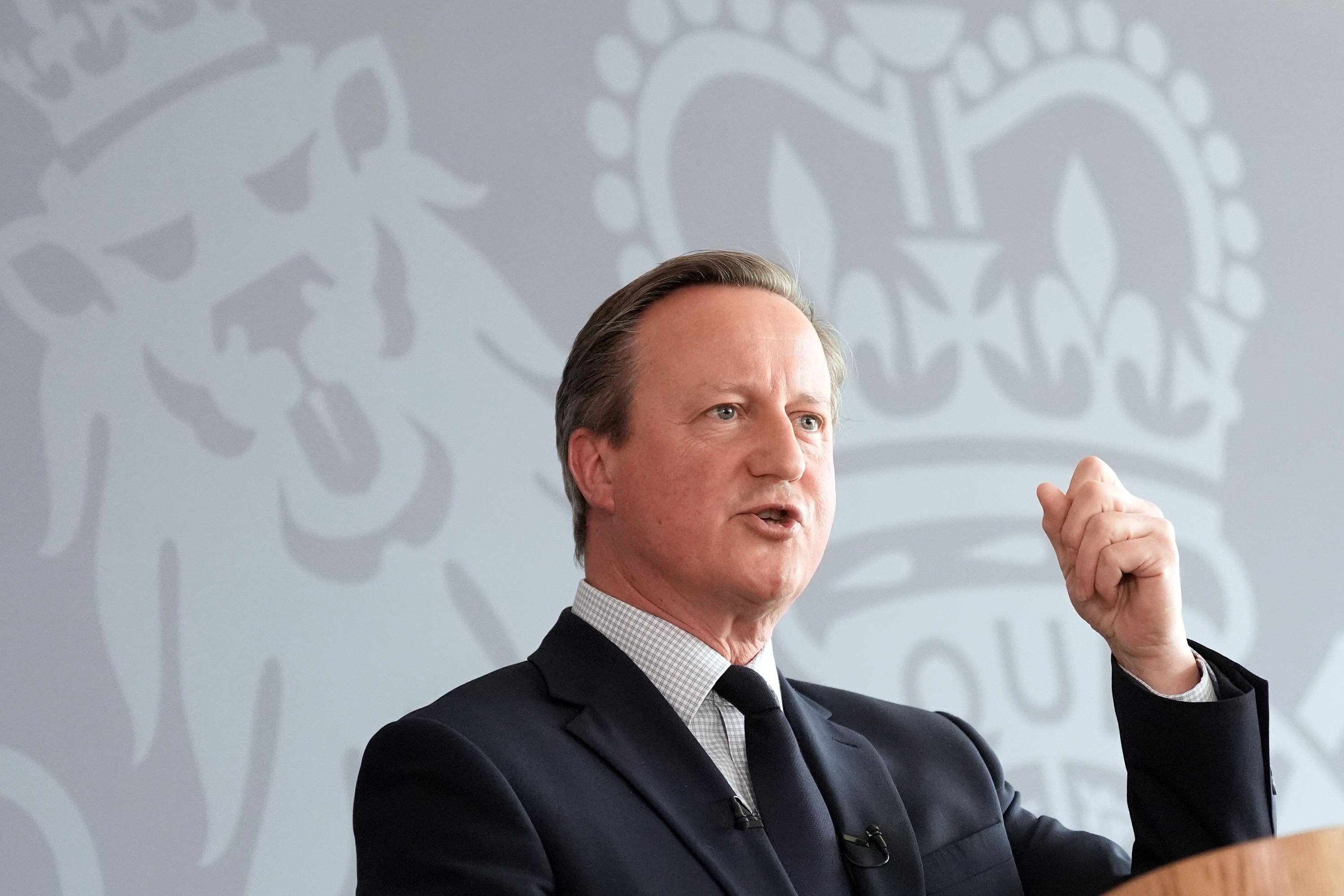Defiant David Cameron defends UK arms sales to Israel hours after Joe Biden threatens to withhold weapons
US President warns: ‘I made it clear that if they go into Rafah ... I’m not supplying the weapons’
A defiant Lord Cameron has defended UK arms sales to Israel hours after Joe Biden threatened to withhold weapons if there is a ground offensive into Rafah.
In highly unsual step, the US president publicly vowed to cut supplies if the heavily populated southern Gaza city is attacked.
Rishi Sunak is facing mounting pressure, including from within his own party, to immediately suspend arms to Israel amid a growing outcry at the number of civilians killed in its war on Hamas.
Those calls intensified on Wednesday, after the US said it had paused a shipload of bombs bound for Israel amid fears over the country’s plans.
But Mr Biden went further overnight, saying in an interview: “I made it clear that if they go into Rafah ... I’m not supplying the weapons.”
Asked if the UK would follow the US’s lead, the foreign secretary insisted arms exports from Britain were very different, in part because they were much smaller in scale and policed by strict rules.
He said: "There’s a very fundamental difference between the US situation and the UK situation."
"The US is a massive state supplier of weapons to Israel ... we do not have a UK government supply of weapons to Israel, we have a number of licences, and I think our defence exports to Israel are responsible for significantly less than 1 per cent of their total."

Israeli prime minister Benjamin Netanyahu has vowed the Rafah operation will go ahead, saying his country’s forces must hit the city to defeat Hamas fighters there.
On Wednesday a former UK national security adviser criticised Mr Sunak for failing to suspend arms sales to Israel sooner.
Crossbench peer Peter Ricketts said it was unfortunate that Britain had not taken a stand, adding that it should have been “ahead of the US” on the decision.
That call was echoed by former cabinet minister and Tory MP David Jones, who told The Independent: “We should give similar consideration to a pause. Anyone viewing the distressing scenes in Gaza will want to see an end to the fighting. Hamas is, in reality, beaten. Now is the time for diplomacy to bring this dreadful conflict to an end.”
Tory MP Mark Logan, a parliamentary private secretary at the Department for Work and Pensions, also said: “The UK should have no part in an offensive in Rafah.”
Challenged on the issue at Prime Minister’s Questions in the Commons, Mr Sunak rejected the call to suspend arms sales, saying ministers had recently assessed Israel’s commitment to international law and the situation was unchanged.

His comment came 24 hours after shadow foreign secretary David Lammy inched Labour closer to calling for an outright ban.
Amid growing pressure on his party from its own MPs and activists to take a harder line, Mr Lammy said: “Hamas is a terrorist organisation, its cowardly tactics are reprehensible, but that does not stop Israel’s obligation to follow the rules of war or the government’s obligation on arms exports.”
He asked in the Commons: “Can the minister say why he thinks an attack on Rafah does not present a clear risk of a serious breach of international humanitarian law? Can he confirm whether he has received any assessment that the threshold has already been met?”
His intervention followed concerns within the Labour leadership that Muslims and others are not voting for the party because of its position on the conflict.
Join our commenting forum
Join thought-provoking conversations, follow other Independent readers and see their replies
Comments
Bookmark popover
Removed from bookmarks